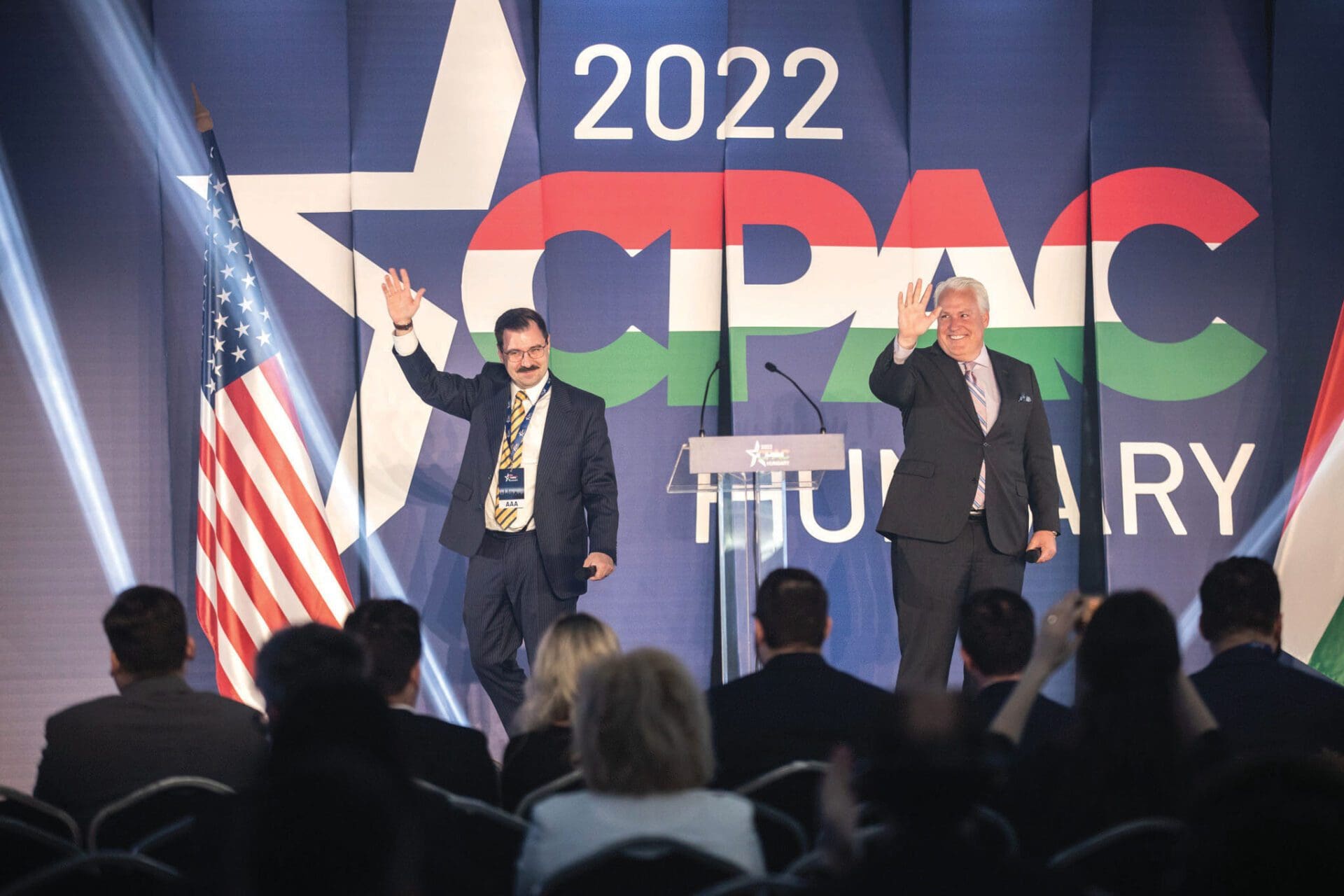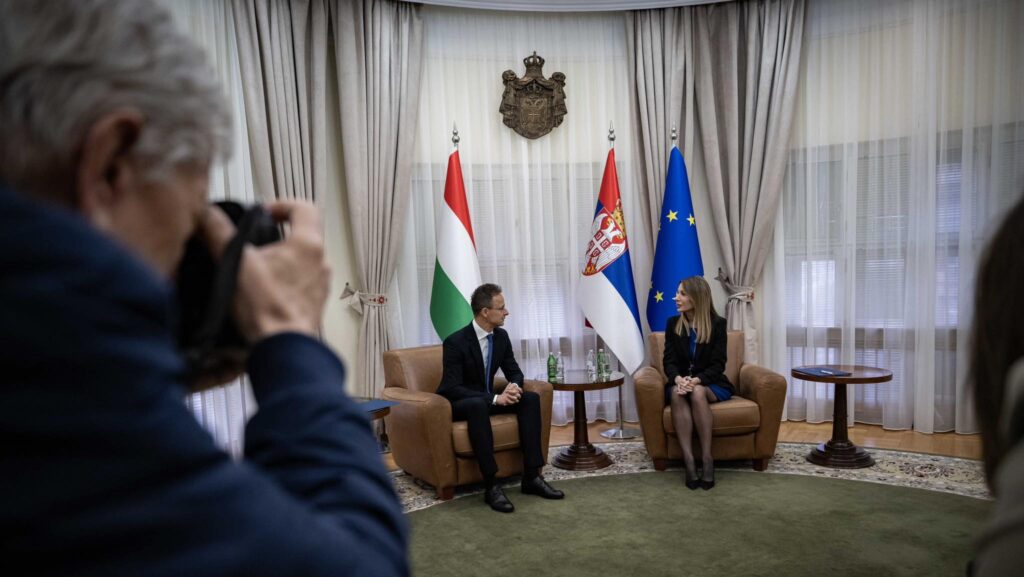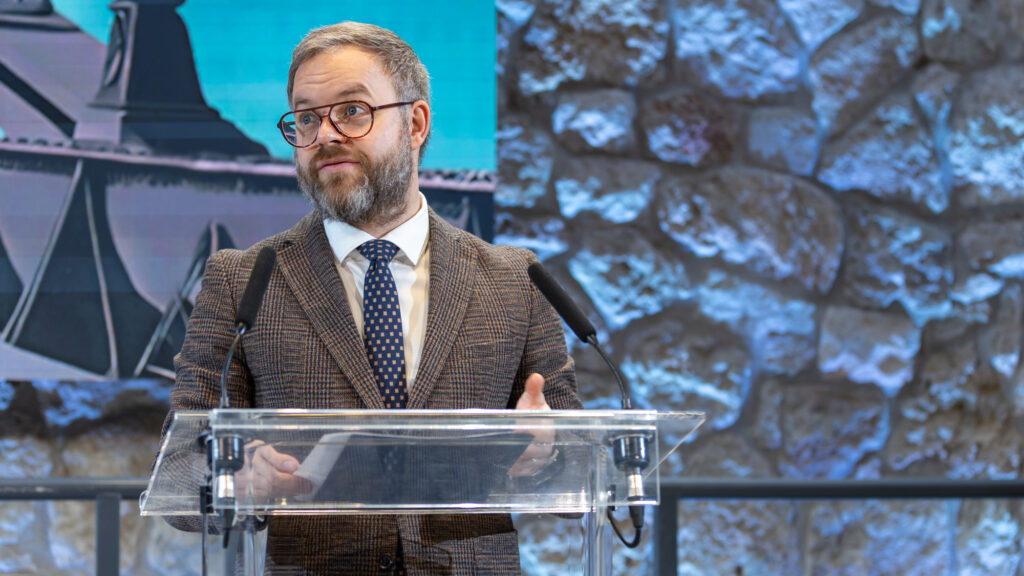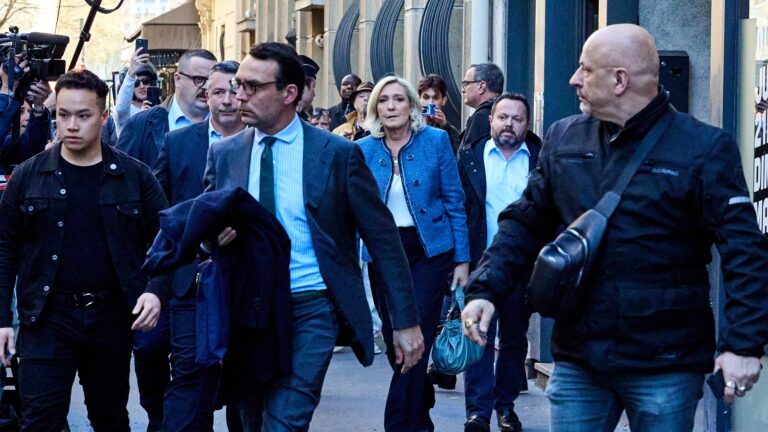‘Freedom is a fragile thing and it’s never more than one generation away from extinction. It is not ours by way of inheritance; it must be fought for and defended constantly by each generation’, said Governor Ronald Reagan in 1967, during his first inaugural address to lead the great state of California. The man, who went on to become one of the most popular American presidents in history, lived his entire political career by these words, and when Reagan transformed American conservatism, this thought became one of the core tenets of our movement.
But what does it mean, really? Liberty does not run in the blood. We are not genetically coded with it, and although I believe that God gifted us with freedom, He never promised that our individual, political, economic freedoms would be easy or free to maintain. Liberty can only be maintained by people who understand its nature and know its purpose. We must be willing to sacrifice to maintain it. And in order to preserve it, every child should be raised to know what freedom is, to understand that they may be called to make sacrifices for it, and to truly believe that this sacrifice is worth it. In short, kids need guidance from their families, their faith institutions, and their teachers to explain the complexities and value of liberty.
That is still not enough, however. In order to preserve liberty, all these elements must be mobilized into a vibrant and dynamic conservative movement. It is through this coordinated effort that we can leverage our individual strength to take on the left.
But let me be clear: conservatism is not an ideology. Ideologies seek to discover universally applicable patterns of solutions to wide-ranging problems, which give birth to countless books expounding on why, say, Marxism has the answer to food shortages in Vietnam, or how the economic theories of Keynes are supposed to speed the Soviet Union’s transformation into a new, market-oriented, democratic Russia. (How is that going by the way?)
We keep our countries firmly grounded in reality, maintain the peace, and let individual success and free enterprise lead to general prosperity
No, conservatism is a philosophy, a frame of mind, an attitude built on a practical belief that people can and should govern themselves. It is not a user’s manual to solve ‘every crisis, everywhere’, but it is a mental habit of putting appropriate value on what really matters. Preserving social tranquillity, letting parents raise their kids to the best of their abilities, fairness and justice based on the equal dignity of all men and women, and letting merit dictate success. By staying laser focused on what is really important, conservatism fulfils its role in society: we keep our countries firmly grounded in reality, maintain the peace, and let individual success and free enterprise lead to general prosperity. Thus, we serve the cause of liberty and the common good.
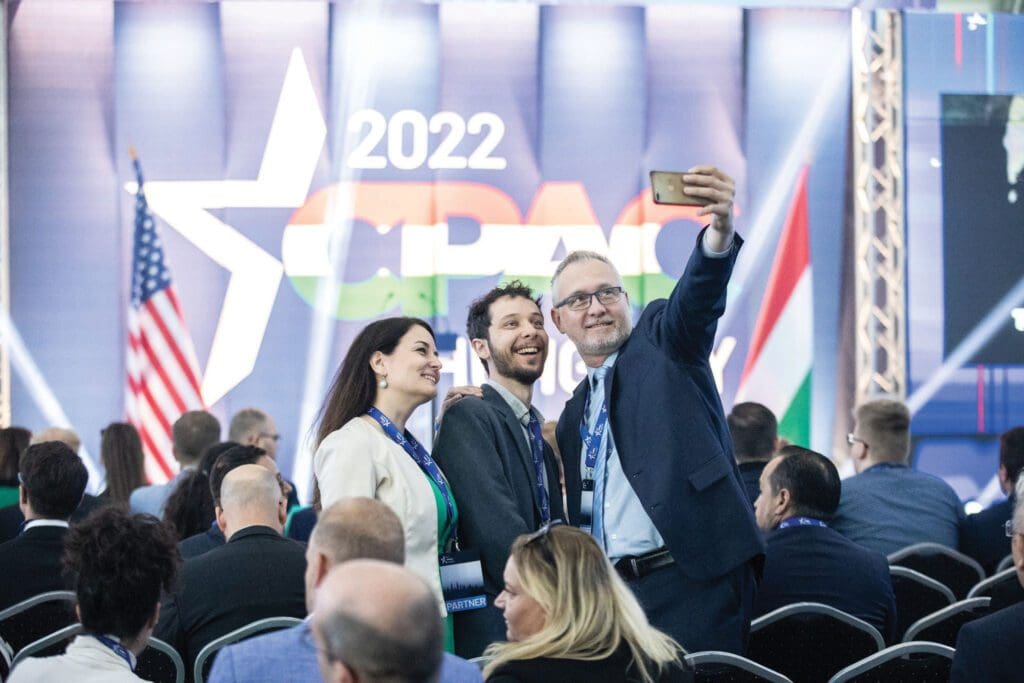
However, as history attests, countries will periodically experience times of crisis and high volatility which too often leads to violence, and sometimes to a total breakdown of society. The early 2020s in the United States, and in the wider West, carry obvious echoes of the early 1790s in France or the late 1910s in Russia. So far, there is no revolutionary bloodshed on the scale seen during those pivotal points in history, but political violence on our streets is already rampant.
The radical left openly seeks to undermine the very cornerstones of Western civilization. It intends to subvert our representative democracies by manipulating elections, and to claim that the governments we do elect are somehow subordinate to vaguely defined, unaccountable supranational entities or even transnational networks of NGOs. In the digital sphere, the left also hopes to control the conversation through the IT giants, censor voices of common sense, and punish those who disagree with them through the Bolshevik practice of cancel culture. We have come to a point where the Marxists dare to hope that they can realize one of their fondest dreams: the dismantling of the traditional family. Once again, the world needs conservatives to step up and stop the madness before Western civilization descends into chaos.
In truth, this mess is partly our own fault. When conservatism is fuelled by well-educated, active citizens, the left almost never dares to attack. This moral and spiritual crisis arose because conservatives have been weak or ineffectual for the last two decades. Our chosen leaders failed to use their positions the way the electorate entrusted them. They became complacent after the triumph over Soviet communism, and then realized too late the true nature of the new Marxism brewing in America’s universities, boardrooms, and culture. These failings must be corrected, but in order to do that we need a conservative renewal and we need to find our voice. If freedom is to be preserved, this generation—like the ones that came before it—must learn its value, its meaning, and must be willing to sacrifice for it.
Because the left is on the march all around the globe, it has become clear that the forces of common sense and tradition from various regions and nations must join forces against a foe that threatens to upend all our societies. These patriotic people come from Europe, Asia, Africa, and the Americas, and they all believe in the values of our Western civilization. This realization led the American Conservative Union to take our flagship event, the Conservative Political Action Conference, global. The first international CPAC was organized in Japan in 2017, and was followed by ones in South Korea, Australia, and Brazil. This year, CPAC arrived for the first time in Europe, in the country that was the obvious choice: Hungary.
A European CPAC has long been planned for reasons that are plain to see: the continent is the cradle of Western civilization, our Greco- Roman culture and Judeo-Christian heritage are rooted here, hundreds of millions of Westerners call it home, and the transatlantic alliance has long been the guarantor of security and prosperity.
However, it is also clear that the Old World has been in a profound moral and political crisis for years as it tries to address the pertinent questions that authoritarian regimes always try to silence. Where does sovereignty reside? Are governments free to make their own choices to serve the people who elect them? Can the citizens of European countries establish their own immigration policies and determine who is allowed to cross their borders? And can citizens instruct their parliaments to pass laws to strengthen their borders?
Similarly, we must all ask whether decades of technocratic, ‘apolitical’ government have strengthened or weakened Europe and the member states, their economies, the individual liberty of the citizens. Are Europeans in control, or does the buck stop with secretive organizations that call themselves NGOs? The answers to these questions are not reassuring, most of us would agree. All the more reason for CPAC to come to Europe and have a conversation about the continent and the state of the conservative movement here.
I love to extol the virtues of freedom whenever I speak. While I am always aware that each country is unique and that not every aspect of American conservatism makes sense for other people, I have great confidence in the universal virtues of our free society. This might be irksome to some, but there is something about the American flag that speaks for everyone who yearns to be free.
In fact, my national anthem literally asks a question about this flag, a question that actually has to do with the very purpose of CPAC. It asks: Does the nation’s flag still wave over a free and brave people? Hungary is a European country where that question can be answered boldly, unequivocally, triumphantly: Yes! The red, white, and green flies over a land whose people are free and courageous. This is why Budapest was the logical place to host the first CPAC in Europe.
We also like amplify doers and winners. For over a decade now, Hungarian conservatives have been in the crosshairs of the global left, ranging from bureaucrats in Brussels (and even in Washington) to transnational influence operations that ingeniously refer to themselves as ‘civil society’ organizations. Where in many countries conservatives bent to such pressures, and in some cases broke entirely, Hungary did not give an inch, and voters rewarded Viktor Orbán’s Fidesz Party with four massive electoral triumphs for their tenacity and perseverance. Be it protecting the border, supporting the family, or putting a stop to gender ideology, this small country took on the giants of the postmodern left, and came out not only vindicated, but, more importantly, victorious. What is the Hungarian recipe for such success? CPAC came to Budapest to find out.

We did not have to wait long for answers. Prime Minister Orbán delivered the opening address at CPAC Hungary where he shared his twelve-point prescription for how to beat the left, not just once but over and over again. It was a bold, ambitious speech, from a talented, astute, and farsighted statesman. Hungary is a mature country that takes itself and the world around it seriously, and it is led by a man who in many ways embodies this very conservative attitude. Orbán’s speech was an exhortation for conservatives to take action in defence of our values. It was also a practical manual for success.
Conservative governance means that we must always stay on the side of the people
His message was clear: conservative governance means that we must always stay on the side of the people, look out for their interests as well as the national interest. We must realize that we are in the fight of our lives against a dangerous foe that hopes to undermine all our core values, and we must play to win; play by our own rules, not theirs. The plan seems to be: ‘We win, they lose.’ Ronald Reagan would nod with approval.
The motto of CPAC Hungary struck all of us as particularly powerful: ‘God, Homeland, Family’. Those values can unite all conservatives, wherever they live. It is often said that realizing meaningful cooperation between the conservatives of different countries is very much like herding cats. After all, we have our different traditions, we might have different religions, and of course different nations will have different, even competing national interests.
The left has long sought to exploit these differences to prevent us from uniting, but under this triune banner we are proving them wrong. All conservatives can and do agree that our religious traditions are precious, preserving our history is vital, and that the traditional family is the core, fundamental building block of a healthy society, which offers the best chance for our children to grow into happy and successful adults who contribute to the common good. But even beyond that, as David Azerrad—a speaker at CPAC Hungary—pointed out: far too often conservative ambition falls short of the mark. ‘Lower taxes’, ‘fewer regulations’, and ‘free enterprise’ are worthy aims to pursue, but ‘God, Homeland, Family’ are things men will literally die for. We need this kind of energy, if we are to motivate the conservative movement to face up to the hegemonic onslaught of the globalist, postmodern left.
Indeed, there was plenty of energy at CPAC Hungary brought, among others, by the youthful vigour and dynamism of Candace Owens, who came to Budapest despite being eight months pregnant with her second child. It soon emerged why she accepted an invitation that must have been a significant burden. A young mom, Candace—along with her husband, Parler CEO George Farmer, who also spoke at the event—knows perfectly well that she and her kids are in the crosshairs: the radical left has decided it is time to deconstruct the family.
Other conservative heavyweights were also present. David Azerrad urged conservatives to be more assertive in the political fight, as Gladden Pappin deployed bruising sarcasm to showcase the West’s decline and Hungary’s resistance to it, and Grégor Puppinck drew the direct line from strong families to strong nations. Valerie Huber, who felt at home because of Hungary’s family policy successes, spoke up for women, girls, and the unborn. Wisdom and experience were in no short supply when Prime Minister Orbán was followed on the CPAC stage by another legendary freedom fighter of the age of Velvet Revolutions, Václav Klaus, former prime minister and president of the Czech Republic.
Video messages arrived from a whole host of conservative champions including former President Donald J. Trump, Mr Brexit – Nigel Farage, and Tucker Carlson. As co-hosts, we were right to be optimistic about CPAC in Hungary.
The American Conservative Union’s chairman Matt Schlapp drew attention to the fact that Hungary has been a standard-bearer for conservative values. He underlined that it is elected governments that should make the decisions that affect nations, not bureaucrats in distant capitals. He also stressed, that the American right always knew to respect the choices of the Hungarian people, and was ready to learn from their successes. It is the left in the US, as in Europe, that looks on with envy and seeks to meddle in Budapest’s affairs.
Representatives of other international CPACs from Japan, Korea, Australia, and Israel also spoke at the event. On behalf of our Hungarian hosts, the Center for Fundamental Rights, Director General Miklós Szánthó urged all conservatives to work together against the rising tide of the radical left.
CPAC Hungary was a smashing success. The host nation symbolized what conservatives aspire to, the speakers addressed the challenges we face and offered sign posts to guide us in the right direction. We are indebted to our partner, the Center for Fundamental Rights, for taking on the lion’s share of the immense work necessary to organize such a massive event as CPAC. The two-day conference proceeded without a hitch. The left, naturally, tried to spoil the party, but all their vicious, baseless attacks failed miserably. Since papers like The Guardian and the Rolling Stone have dropped all pretence of being anything other than mouthpieces for globalist progressives, we can rightly assume that the more they criticize us, the better we must be doing.
Western civilization needs a conservative renaissance, and fortunately for all of us, it is happening. You can see people everywhere turning against the ‘Church of Woke’, as they increasingly realize the postmodern progressive zealots have totalitarian ambitions that would interfere with our most intimate lives. It is clear that Hungary is one of the engines of this renewal, and we have every reason to hope that CPAC Hungary put the spotlight on the ceaseless, valiant efforts of this small Central European country to save themselves from the radical left and lead all those who are willing to emulate their good example.
CPAC was originally born out of an American need for a conservative revival. It now goes global to fulfil the world’s. The first CPAC Hungary was a major step in this direction.

